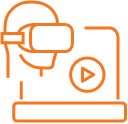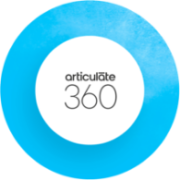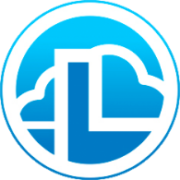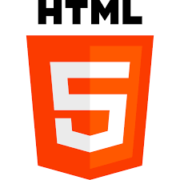Rapid Content Development
Digital learning
content needs vary.
Some organizations come to us with their defined training plan for us to creatively develop their eLearning modules.
Some organizations use a specified authoring-tools-based development approach. Whatever the scenario is, we create a digital learning flow for rapid content development.
Your eLearning content development partner for all your needs
We build your courses with a thorough understanding of your organization’s training goals and vision for the learning curriculum. We recommend the most suitable approach and media mix that help you meet learning objectives.
If your learning organization needs to build a large volume of courses, we seamlessly integrate ourselves into the design and development process and work on the authoring tool of your choice. For learning organizations that do not have a process in place, we help you set them up.


eLearning
Designed to deliver desired learning experiences and outcomes.
eLearning content for schools, higher education, non-profits, and extended enterprise training is where our core expertise and experience lies. We closely collaborate with you to define the design and development process to align with the business and learning goals. Leveraging the latest tools and technologies, we create a personalized learning experience for the learners to help them achieve defined learning objectives. Developing a high volume of content requires skill-sets, streamlined processes, and proactive collaboration with various stakeholders—that defines our approach to every eLearning development project.

Microlearning
Bite-sized learning crafted for modern learners’ needs.
Short modules focusing on one topic each, accessible on any device, make learning possible in the flow of work. Learning content is packaged in manageable chunks for quick assimilation to suit the busy schedules, attention span, and retention capacity of learners of all age groups. You can determine the format of microlearning modules by keeping business goals in mind. Microlearning in your learning strategy poses the challenges of creating and managing large amounts of consistent content and having the right amount of information. Having a process and platform to create, distribute, and manage microlearning modules is paramount to your success. Authoring courses using our suite of interactive templates and delivering them via our hosted LMS is the preferred strategy for many global organizations.


Mobile learning
Anytime, anywhere learning delivered on any mobile device.
If done right, mobile learning integrates learning into our daily lives seamlessly. However, not all digital learning consumed on mobile devices is mobile learning. You need a series of quick learning nuggets that are visually appealing and engaging, followed by knowledge checks and delivered on branded learning apps. With the planned timely nudges, drip content, knowledge test games on the learning app, you can effectively use mobile learning for continuous learning and performance development. Using our authoring templates for content creation and white-labeled learning apps, you’ll be able to offer a holistic mobile learning product to your learners.

Video based learning
Animation or instructor-driven courses for the audience that loves videos.
Videos are the favorite and most preferred content type, where how-to YouTube tutorials and gaming videos have over 200 billion hours of annual views. Video is a powerful learning tool when designed with a compelling storytelling technique. You can use simple photo-based or motion graphics or talking head videos to create video courses for online learning. While video creation tools are widely available, writing the storyline to meet the learning objectives and professionally producing them requires a team of experts. We have been enabling many educational, training and non-profit organizations to create and deliver video based online learning courses in steady-state mode.


Gamified learning
Creative fun learning that sparks emotions, competitive spirit and increases knowledge retention.
You hear many names and concepts—gamified learning, game based learning, gamification, or learning games. The idea is to look beyond the basic scoreboards and rewards and make learning fun, engaging, challenging and spark the competitive spirit of games. Gamification is applying game elements to non-game activities like using a leaderboard, badges or points. Game based learning or Serious Games uses real “Games” to facilitate learning. Depending on the learning objectives gamification or serious games can be used to balance the subject matter with game-play.
A good storyline and game-play design help achieve high level of interaction and enables the learner to retain and apply real world applications. Learning games often have rich visuals and increasing level of difficulties that pushes the learner to outperform themselves and give them a sense of achievement. Personalization through avatars represents personal progress.

Simulation based learning
Immersive real-life like learning experience to drive performance.
Simulation based learning is widely adopted for higher education, vocational training, and skill development. Enterprises also prefer simulations for product training for extended enterprise training.
Simulations in higher education and vocational training teach complex science, engineering, manufacturing topics using simulated models.
Business or Process simulations focus on business skills and business processes that emulate the real world business environment. Branching architecture, decision tree algorithms, role-play and guided feedback take learners away from the abstract to application in real-world scenarios, where they can see real-world responses.
Product Simulation helps improve product launches, train end-users or sales and technical staff, and reduce the need for technical support. Whereas software simulations provide an environment where learners explore, make mistakes, and practice in a risk-free environment.
Proficiency in Content
Development Tools
We have used a wide variety of development environments to develop content for our customers.
We have our own software development kit (SDK) that allows us to do rapid prototyping and development. Our SDK consists of several templates for role play, voice recognition, simulations, and gamification. Our tools comply with all major standards available today, including AICC, SCORM, xAPI, and cmi5.





Our eLearning Content Development Process

SPOC
Every project has a single point of contact, involved in all key decisions in the project, both at the start and as the project progresses. The SPOC sets up the process based on the terms agreed with the customer.

Microsite
We set up a project microsite that shows all elements of the project in a transparent manner. The customer has the information and the project status easily accessible at any given time.

Custom Tools
We undertake a separate exercise for our large long-term projects to identify the scope to build efficiency in the process. We create tools that will help reduce errors and increase productivity.

QA and Testing
We agree on the testing protocols at the start of the project and ensure those are met throughout the process.


